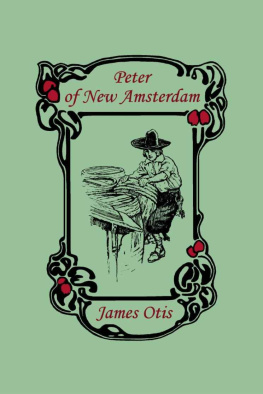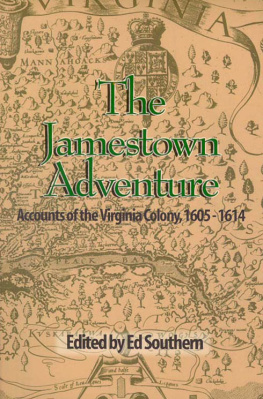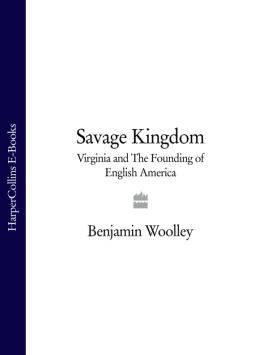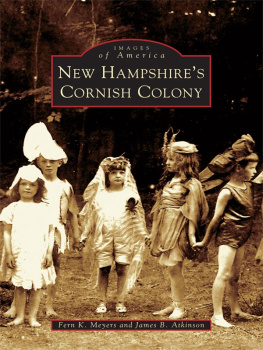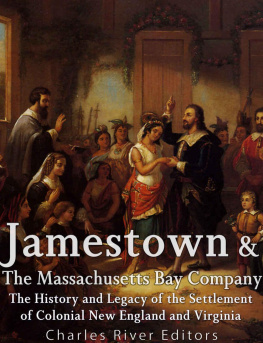Richard of Jamestown
by
James Otis
Yesterday's Classics
Chapel Hill, North Carolina
Cover and Arrangement 2010 Yesterday's Classics, LLC
All rights reserved. No part of this book may be reproduced or retransmitted in any form or by any means without the written permission of the publisher.
This edition, first published in 2010 by Yesterday's Classics, an imprint of Yesterday's Classics, LLC, is an unabridged republication of the work originally published by American Book Co. in 1910. This title is available in a print edition (ISBN 978-1-59915-186-1).
Yesterday's Classics, LLC
PO Box 3418
Chapel Hill, NC 27515
Yesterday's Classics
Yesterday's Classics republishes classic books for children from the golden age of children's literature, the era from 1880 to 1920. Many of our titles are offered in high-quality paperback editions, with text cast in modern easy-to-read type for today's readers. The illustrations from the original volumes are included except in those few cases where the quality of the original images is too low to make their reproduction feasible. Unless specified otherwise, color illustrations in the original volumes are rendered in black and white in our print editions.
Foreword
The purpose of this series of stories is to show the children, and even those who have already taken up the study of history, the home life of the colonists with whom they meet in their books. To this end every effort has been made to avoid anything savoring of romance, and to deal only with facts, so far as it is possible, while describing the daily life of those people who conquered the wilderness whether for conscience sake or for gain.
That the stories may appeal more directly to the children, they are told from the viewpoint of a child, and purport to have been related by a child. Should any criticism be made regarding the seeming neglect to mention important historical facts, the answer would be that these books are not sent out as histories,although it is believed that they will awaken a desire to learn more of the building of the nation,and only such incidents as would be particularly noted by a child are used.
Surely it is entertaining as well as instructive for young people to read of the toil and privations in the homes of tose who came into a new world to build up a country for themselves, and such homely facts are not to be found in the real histories of our land.
Contents
Who I Am
Y ES, my name is Richard Mutton. Sounds rather queer, doesn't it? The lads in London town used to vex me sorely by calling, "Baa, baa, black sheep," whenever I passed them, and yet he who will may find the name Richard Mutton written in the list of those who were sent to Virginia, in the new world, by the London Company, on the nineteenth day of December, in the year of Our Lord, 1606.
Whosoever may chance to read what I am here setting down, will, perhaps, ask how it happened that a lad only ten years of age was allowed to sail for that new world in company with such a band of adventurous men as headed the enterprise.
Therefore it is that I must tell a certain portion of the story of my life, for the better understanding of how I came to be in this fair, wild, savage beset land of Virginia.
Yet I was not the only boy who sailed in the Susan Constant , as you may see by turning to the list of names, which is under the care, even to this day, of the London Company, for there you will find written in clerkly hand the names, Samuel Collier, Nathaniel Peacock, James Brumfield, and Richard Mutton.
Nathaniel Peacock has declared more than once that my name comes last in the company at the very end of all, because I was not a full-grown mutton; but only large enough to be called a sheep's tail, and therefore should be hung on behind, as is shown by the list.
Left Alone in the World
T HE reason of my being in this country of Virginia at so young an age, is directly concerned with that brave soldier and wondrous adventurer, Captain John Smith, of whom I make no doubt the people in this new world, when the land has been covered with towns and villages, will come to know right well, for of a truth he is a wonderful man.
In the sixth month of Grace, 1606, I Was living as best I might in that great city of London, which is as much a wilderness of houses, as this country is a wilderness of trees.
My father was a soldier of fortune, which means that he stood ready to do battle in behalf of whatsoever nation he believed was in the right, or, perhaps, on the side of those people who would pay him the most money for risking his life.
He had fought with the Dutch soldiers under command of one Captain Miles Standish, an Englishman of renown among men of arms, and had been killed.
My mother died less than a week before the news was brought that my father had been shot to death. Not then fully understanding how great a disaster it is to a young lad when he loses father or mother, and how yet more sad is his lot when he has lost both parents, I made shift to live as best I might with a sore heart; but yet not so sore as if I had known the full extent of the misfortune which had overtaken me.
An Idle Boy
A T first it was an easy matter for me to get food at the home of this lad, or of that, among my acquaintances, sleeping wherever night overtook me; but, finally, when mayhap three months had gone by, my welcome was worn threadbare, and I was told by more than one, that a hulking lad of ten years should have more pride than to beg his way from door to door.
It is with shame I here set down the fact, that many weeks passed before I came to understand, in ever so slight a degree, what a milksop I must be, thus eating the bread of idleness when I should have won the right, by labor, to a livelihood in this world.
This last thought had just begun to take root in my heart when Nathaniel Peacock, whose mother had been a good friend of mine during a certain time after I was made an orphan, and I, heard that a remarkably brave soldier was in the city of London, making ready to go into the new world, with the intent to build there a town for the king.
Captain John Smith Comes to London
T HIS man was no other than Captain John Smith, who, although at this time not above six and twenty years of age, had already served in the French, in the Dutch, and in the Transylvanian armies, where he had met and overcome many dangers.
He had been robbed and beaten and thrown into the sea because of not believing in the religion of the men who attacked him; he had been a slave among the Turks; he had fought, one after another, three of the bravest in the Turkish army, and had cut off the head of each in turn.
Can it be wondered at that Nathaniel Peacock and I were filled to overflowing with admiration for this wonderful soldier, or that we desired above all things to see him?
We loitered about the streets of London town from daylight until night had come again, hoping to feast our eyes upon this same John Smith, who was to us one of the wonders of the world, because in so short a time he had made his name as a soldier famous in all countries, and yet we saw him not.


